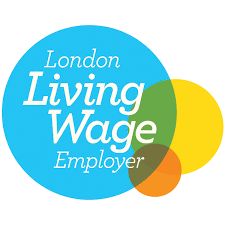In our last article, How much do you now get on Universal Credit? we looked at several different aspects of Universal Credit, including the current value of the Universal Credit standard allowances, and various additional payments that may be available depending on your individual circumstances.
In this article we will give you more information about:
- Who is eligible for Universal Credit;
- How to apply for Universal Credit;
- How and when you will be paid.
Who is eligible for Universal Credit?
Universal Credit is designed to support people who are on a low income, whether or not they are in work. It was introduced in 2013 as a replacement for several previous benefits:
- Income support;
- Jobseeker's allowance;
- Employment and support allowance;
- Housing benefit;
- Child tax credit;
- Working tax credit.
The general eligibility criteria for Universal Credit are that you:
- Are aged between 18 (with some exceptions - see below) and State Pension age;
- Are resident in the UK,
- have £16,000 or less in savings.
If you have a live-in partner, you need to make a joint application for Universal Credit, ensuring that their financial circumstances are taken into account.
Let’s take a look at some more specific details. We will cover your eligibility for Universal Credit if you are: Working.
- Temporarily not working.
- Permanently unable to work.
- In full time education.
- Aged 16 or 17.
If you are working
If you are employed but have a low income, you may be eligible for Universal Credit. This applies no matter what kind of contract you have or how many hours you work.
You can use Fair Finance’s benefits calculator to find out if you are likely to be able to receive Universal Credit.
If this is the case, you will continue to receive Universal Credit until your earnings are high enough. Up to this point, your Universal Credit payments will adjust automatically as your earnings change.
In certain circumstances, you may be given a Work Allowance which gives you a higher earnings threshold before your Universal Credit payments are affected. You may be eligible for a Work Allowance either if you are responsible for children or have limited capability for work.
If you are temporarily not working
If you are temporarily out of work you will normally be allocated a work coach when you apply for Universal Credit. Your coach will help you understand more about how to apply for Universal Credit and how to prepare for returning to work and looking for jobs. They may also be able to continue providing support and advice if needed after you start work.
If you have worked as an employee and paid enough National Insurance contributions you may also be eligible for either New Style Jobseeker’s Allowance (JSA) or New Style Employment and Support Allowance (ESA). These are separate benefits from Universal Credit and would reduce the amount of Universal Credit you receive.
Fair Finance’s benefits calculator could help you to see the best combination of benefits for your current circumstances.
If you are permanently unable to work
If you apply for Universal Credit and have a health condition or disability which prevents you from working, you will need to undertake a Work Capability Assessment (WCA) to provide medical evidence of this. This will involve you completing a questionnaire, and may also require a medical examination.
You can find more information about the Work Capability Assessment on Gov UK.
Following your WCA, a decision will be made as to whether:
- You have limited capability for work ie you are not able to look for work now, but may at some time in the future. In this case, you are likely to be allocated a work coach - see above - to help you prepare for this.
- You have limited capability for work and work-related activity i.e. you will not be asked either to look for work, or prepare for work.
If you are in full time education
- If you’re 18 or over and in full time education you can claim for Universal Credit if:
- You live with your partner and they’re eligible for Universal Credit.
- You are responsible for a child.
- You are aged 21 or under and do not have parental support.
- You’re entitled to Personal Independence Payment (PIP), Disability Living Allowance (DLA) or have already been assessed as having limited capability for work.
If you’re aged 16 or 17
If you’re aged 16 or 17 you can claim for Universal Credit if:
- You do not have parental support and are not under local authority care.
- You have limited capability for work.
- You are a carer for a child or a severely disabled person.
- You are in a couple with at least one child and your partner is eligible for Universal Credit.
- You are pregnant and within 11 weeks of your expected week of childbirth.
- You have had a child in the last 15 weeks.
- You are in full-time further education and any of the above apply.
- You can check whether you are eligible for Universal Credit by using Fair Finance benefits calculator:
How to apply for Universal Credit
If you are eligible for Universal Credit you can either apply online on the Gov UK website or call the Universal Credit helpline on 0800 328 5644.
There are also dedicated Citizens Advice Bureau helplines available. These can provide more information on how to apply for Universal Credit for those applying for the first time.
The numbers are:
England - 0800 144 8444
Scotland - 0800 023 2581
Wales - 0800 024 1220
You will need to have the following information when you apply:
- Proof of identity eg a driving licence / passport / debit or credit card;
- A bank, building society or credit union account;
- An email address;
- Details of your regular income and any savings;
- Details of how much you pay for childcare (if you’re applying for help with childcare costs).
How and when will you be paid?
Your Universal Credit will be paid once a month into your bank, building society or credit union account. If for any reason you are unable to open a bank, building society or credit union account, call the Universal Credit helpline to arrange an alternative way of getting paid.
It usually takes around 5 weeks to get your first Universal Credit payment. You can apply for an advance on this first payment if you need help with living costs before you get your first payment.
We hope that this article has helped you to understand more about:
- Who is eligible for Universal Credit;
- How to apply for Universal Credit;
- How and when you will be paid.
For further help, do check out our previous article How much do you now get on Universal Credit? and also our Fair Finance benefits calculator.




